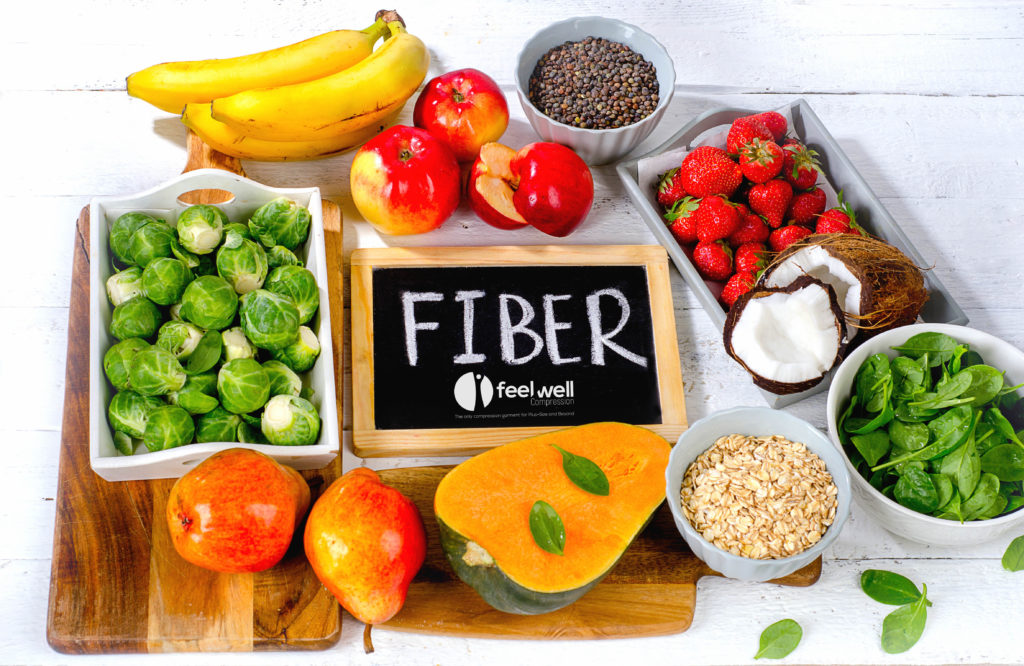Fiber is one of those nutrients that we think we know a lot about at first, but then realize that it is more complex than we realized. When the word fiber is used some people are prone to instantly think of broccoli while others remember the oatmeal they may have been forced to eat but grew to love.
Ask just about anyone why fiber is important and they will most likely tell you because it “keeps things moving” in the body. While this is true, fiber is more than oatmeal or regularity. In fact, the benefits of fiber almost seem too good to be true.
Gaining a clearer understanding of what fiber is will help us appreciate the benefits of this nutrient. Fiber is quite different from one source to the next. Fiber is a carbohydrate, but the body is unable to break it down, this is different from other forms of carbohydrates that the body breaks down into glucose (sugar).
The two primary forms of fiber are soluble and insoluble. Soluble fiber dissolves in water whereas insoluble does not. One is not more important than the other; however, they both have benefits and are important for optimal health and function of the body.
Soluble fiber develops a gel-like texture in the digestive tract because it attracts water. This substance will then slow digestion. Insoluble fiber does not turn to gel; because of this it adds bulk to the stool which will result in food moving more quickly through the digestive tract.
Lowers Cholesterol
This major benefit of soluble fiber, lowering low-density lipoprotein (LDL/bad) cholesterol in the bloodstream, seems almost magical in nature. This takes place due to soluble fiber’s ability to bind to cholesterol in the blood and move it through the gut without being absorbed and eventually expelled. Foods like black beans, sweet potatoes, and even avocados are excellent sources of this cholesterol reducing form of fiber.
Encourages Weight Loss
A major benefit of fiber’s ability to increase satiety by adding bulk and slowing digestion is its impact on weight. When a person feels full, from a high fiber diet, they are less likely to over-eat which results in weight loss. Soluble fiber is also known to be a natural appetite suppressant; this makes sources of soluble fiber a go-to when hunger cravings strike.
Feeds Good Gut Bacteria
The gut contains bacterial which are essential to many areas of health in the body. This naturally occurring bacteria is referred to as “good” bacteria. Where there is a good that means there can be a bad. Bad bacteria can overrun the good bacteria in the gut and cause a host of health complications and gastrointestinal issues. Fiber acts as a “prebiotic” which serves as food for the good bacteria. Consuming fiber feeds these good bacteria making it more likely to grow and withstand the presence of harmful versions.
Reduce Inflammation
Diets high in fiber have been associated with lower inflammatory markers. Chronic inflammation will ultimately lead to the development of serious illness and ailments in the body.
It is recommended that women consume 25 grams of fiber each day while mean should aims to consume 38 grams per day. Now that you’re convinced of fiber’s benefits be careful not to increase your intake too quickly. Rapid fiber intake can cause gastrointestinal issues. Rather aim to add a little more in each day.
Fiber’s benefits are hard to argue against. If fiber’s only helpful side effect was aiding with weight loss that alone would be enough reason to eat plenty of this nutrient. However, this is not the case, the benefits of fiber go well beyond weight loss and touches just about every area of the consumer’s health.
Trista K.Best, MPH, RD, LDN


